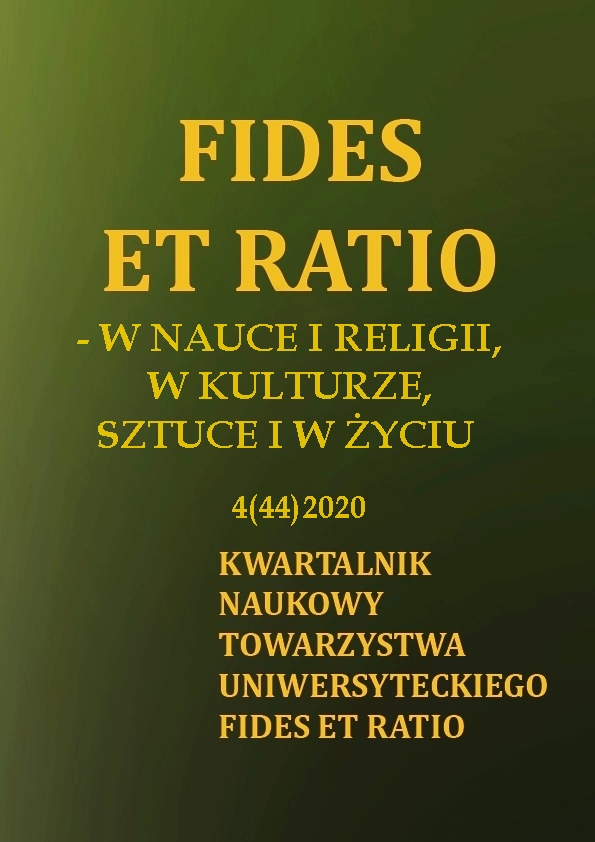Abstrakt
Abstrakt: Celem artykułu jest ukazanie zmian w zachowaniach młodych ludzi w kontekście przemian pokoleniowych, z akcentem na ujęcie australijskiego badacza społecznego i futurystę Mark’a McCrindle. Szczególną uwagę poświęcono generacjom Z i Alpha, których przedstawiciele wykorzystują media cyfrowe w wielu obszarach życia. Kierunek teoretycznych analiz wyznaczyły dwa pytania: jak cyfrowe technologie determinują życie najmłodszych pokoleń oraz co z tego wynika dla działań pedagogów? Artykuł oparto na studiach literaturowych (analiza dokumentów zastanych). Konkluzje nie wytyczają jednoznacznych odpowiedzi, jednakże wskazują na wagę poznania młodego pokolenia, akceptacji jego przemiany, wskazywania alternatywnych form funkcjonowania w świecie realnym, zaspokajania potrzeby wspólnotowości i przynależności.
Bibliografia
Behets, D. (2001). Value Orientations of Physical Education Preservice and Inservice Teachers, Journal of Teaching in Physical Education, 20 (2), 144-154, https://doi.org/10.1123/jtpe.20.2.144.
Brzozowski, P. (1995). Skala Wartości Schelerowskich — SWS (Schelerian Values Scale SWS), Warsaw: PTP.
Demel, M. (1973). Szkice krytyczne o kulturze fizycznej, (Critical sketches on physical culture), Warsaw: Sport i Turystyka.
Elżanowska, H. (2012). Międzypokoleniowa transmisja wartości w rodzinie (Intergenerational transmission of values in the family), (in:) O. Gorbaniuk,
O. Kostrubiec- Wojtachnio, B. Musiał, & D.Wiechetek (eds.), Studia z Psychologii w KUL, 97-114, Lublin: KUL. Available at:https://www.kul.pl/files/55/Stud_psych_18-2012_Elzanowska.pdf, (dostęp: 02.09.2020).
Evans, J. (2012). Physical Education as porn! Physical Education and Sport Pedagogy, 18 (1), 75-89, https://doi.org/10.1080/17408989.2011.631002.
Garrett, R., Wrench, A. (2007). Physical experiences: primary student teachers' conceptions of sport and physical education, Physical Education and Sport Pedagogy, 12 (1), 23-42, https://doi.org/10.1080/17408980601060234.
Görgüt, I., Tutkun, E. (2018). Views of Physical Education Teachers on Values Education, Universal Journal of Educational Research, 6 (2), 317-332.
Gullu, M. (2016). Examining the Values of Students in the Physical Education and Sport Departments, Educational Research and Reviews, 11(19), 1812-1822. Available at: https://eric.ed.gov/contentdelivery/servlet/ERICServlet?accno=EJ1117285.
Harvey, S., Kirk, D., O’ Donovan T.M. (2011). Sport Education as a pedagogical application for ethical development in physical education and youth sport, Sport, Education and Society, 19(1), 41-62, https://doi.org/10.1080/13573322.2011.624594.
Jung, H., Choi, E. (2014). The importance of indirect teaching behaviour and its educational effects in physical education, Physical Education and Sport Pedagogy, 21 (2), 121-136.
Kirk, D. (2013). Educational Value and Models-Based Practice in Physical Education, Educational Philosophy and Theory, 45 (9), 973-986.
Klomsten, A.T., H.W. Marsh, Skaalvik, E. M.(2005). Adolescents’ Perceptions of Masculine and Feminine Values in Sport and Physical Education: A Study of Gender Differences, Sex Roles, 9/10, 52, 625–636. Available at: https://link.springer.com/article/10.1007/s11199-005-3730-x, (dostęp: 02.09.2020).
Koh, K.T., Ong, Sh. W., Camiré, M. (2014). Implementation of a values training program in physical education and sport: perspectives from teachers, coaches, students, and athletes, Physical Education and Sport Pedagogy, 21 (3), 295-312.
López-Pastor, V.M., Kirk, D., Lorente-Catalán, E., MacPhail, A., Macdonald, D. (2012). Alternative assessment in physical education: a review of international literature, Sport, Education and Society, 18 (1), 57-76, https://doi.org/10.1080/13573322.2012.713860.
Nikiel, T. (2009). Interpretacja wartości a rozumienie ideału dobra moralnego (Interpretation of values and understanding of the ideal of moral good), Studia Psychologica, 9, 201-210.
Nowocień, J. (2014). Olimpizm i fair play jako źródło wartości w nowoczesnym procesie edukacji (Olympism and fair play as a source of value in the modern education process), (in:) K. Hądzelek, M. Rejf, H. Zdebska-Biziewska & R. Żukowski (eds.), Czysta gra (Fair Play), 198-202, Cracow: Fall.
Ostrowska, K. (2004). W poszukiwaniu wartości, ([In search of value), Kraków: Rubikon.
Shaw, K. (2006). Traditional society and modern teaching, TeacherDdevelopment, 2 (2): 179-191, https://doi.org/10.1080/13664539800200053.
Smykowski, B. (2004). Wczesna dorosłość- szanse rozwoju, (Early adulthood - development opportunities), Remedium, 2 (132), 4-5.
Sofo, S., Curtner- Smith, M.D. (2010). Development of preservice teachers' value orientations during a secondary methods course and early field experience, Sport. Education and Society, 15(3), 347-365, https://doi.org/10.1080/13573322.2010.493314.
Spławska, J. (2008). Poziom rozwoju rozumowania moralnego w świetle badań metodą Lawrence’a Kohlberga (The level of development of moral reasoning in the light of research by Lawrence Kohlberg's method), Przegląd Pedagogiczny, 2, 107-120.
Timken, G.L., van der Mars, H. (2009). The effect of case methods on preservice physical education teachers' value orientations, Physical Education and Sport Pedagogy, 14 (2), 169-187, https://doi.org/10.1080/17408980701718459.
Wallhead, T.L., A.C. Garn, Vidoni C. (2012). Sport Education and social goals in physical education: relationships with enjoyment, relatedness, and leisure-time physical activity, Physical Education and Sport Pedagogy, 18 (4), 427-441.
Zhu, X., Ennis, C.D., Chen, A. (2010). Implementation challenges for a constructivist physical education curriculum, Physical Education and Sport Pedagogy, 16 (1), 83-99, https://doi.org/10.1080/17408981003712802.

